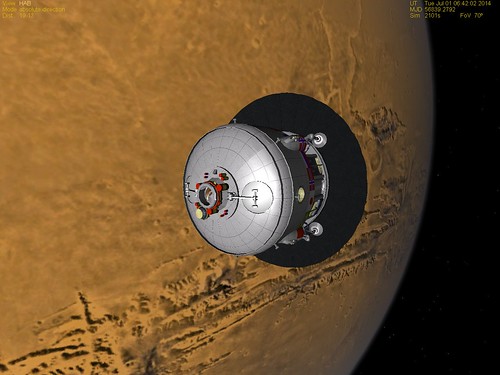H
halman
Guest
Why we need asteroid mining!
The Solar System cooled over millions of years, which means that the denser materials tended to end up closer to the Sun, while the lighter stuff is further out. The Asteroid Belt is probably a nice mix of just about everything, from water ice to uranium. Anyone who claims one of those chunks of rock had better be able to identify it, because there are millions of them out there. By building a large, parabolic mirror, we can generate temperatures high enough to vaporize metals, let alone smelt them down. We know next to nothing about the composition of most of the rocks floating around out there, partly because heavy, rocky bodies, such as nickel-iron stones, are more likely to survive the entry into the atmosphere, but other, lighter bodies probably burn up.
Mining ore out of the ground is only the beginning of the process to having refined metal. Most metals require exposure to high temperatures for several hours to separate them from the impurities in the ore, which means burning large amounts of coal, usually. So the energy costs must include mining the ore, transporting the ore to a smelter, mining coal, hauling the coal to the smelter, and burning the coal. If we are going to burn the coal cleanly, the price goes way up. And all of this does not even consider the waste rock that must be dug out of the ground to get to the ore, which people usually don't put back. If we are going to be serious about avoiding global warming, we are going to have to avoid such activities as smelting metals down. It will just be too expensive carbon wise.
At the moment, only a small portion of the world's population is consuming these rare metals. But what will happen when more and more people begin enjoying higher standards of living? The US population is still under, or right at, 400 million, yet they (we) are producing 25 percent of the greenhouse gasses. Extrapolate how much of those gasses will be produced when 1 billion people are enjoying the same living standards as the US. Or 2 billion. If we don't start doing this kind of stuff off planet, we are going end up not doing it all.
The Solar System cooled over millions of years, which means that the denser materials tended to end up closer to the Sun, while the lighter stuff is further out. The Asteroid Belt is probably a nice mix of just about everything, from water ice to uranium. Anyone who claims one of those chunks of rock had better be able to identify it, because there are millions of them out there. By building a large, parabolic mirror, we can generate temperatures high enough to vaporize metals, let alone smelt them down. We know next to nothing about the composition of most of the rocks floating around out there, partly because heavy, rocky bodies, such as nickel-iron stones, are more likely to survive the entry into the atmosphere, but other, lighter bodies probably burn up.
Mining ore out of the ground is only the beginning of the process to having refined metal. Most metals require exposure to high temperatures for several hours to separate them from the impurities in the ore, which means burning large amounts of coal, usually. So the energy costs must include mining the ore, transporting the ore to a smelter, mining coal, hauling the coal to the smelter, and burning the coal. If we are going to burn the coal cleanly, the price goes way up. And all of this does not even consider the waste rock that must be dug out of the ground to get to the ore, which people usually don't put back. If we are going to be serious about avoiding global warming, we are going to have to avoid such activities as smelting metals down. It will just be too expensive carbon wise.
At the moment, only a small portion of the world's population is consuming these rare metals. But what will happen when more and more people begin enjoying higher standards of living? The US population is still under, or right at, 400 million, yet they (we) are producing 25 percent of the greenhouse gasses. Extrapolate how much of those gasses will be produced when 1 billion people are enjoying the same living standards as the US. Or 2 billion. If we don't start doing this kind of stuff off planet, we are going end up not doing it all.





